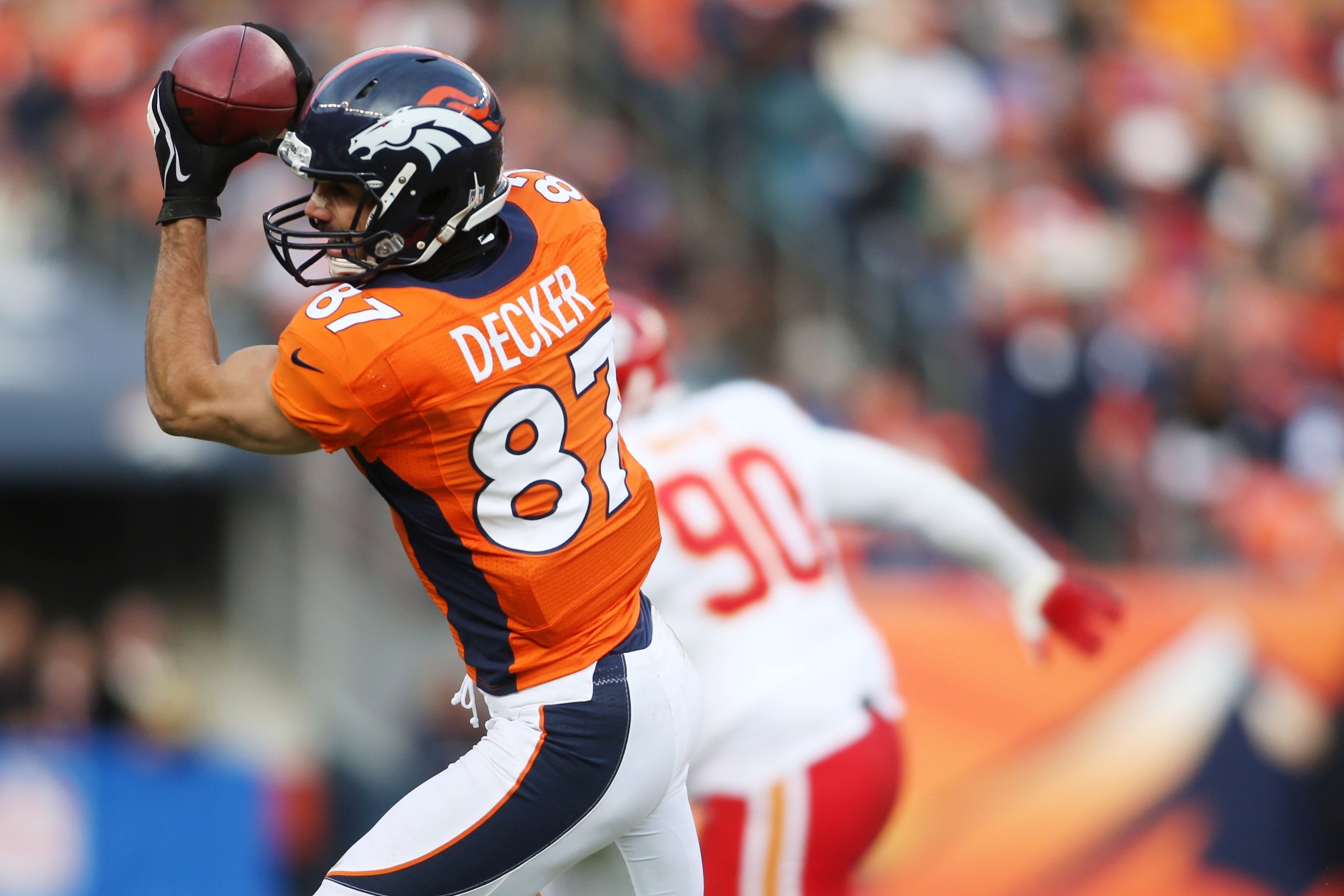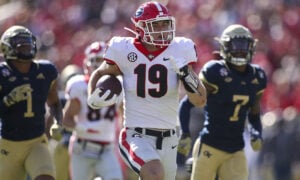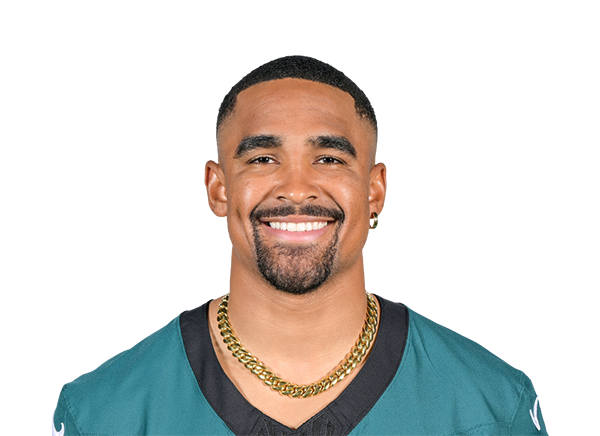Dynasty Purgatory: Eric Decker
 Following the conclusion of the 2012 NFL season, many players were stuck in limbo with regards to their future prospects. Be it due to injuries, unexpectedly poor performances or contract-related circumstances, expectations for these players may have shifted, or become downright shrouded in uncertainty. Naturally, whatever transpires in “real life” always trickles over to the fantasy world, so it’s unsurprising that these players’ values may have taken a hit – they were stuck in a sort of “Dynasty Purgatory.”
Following the conclusion of the 2012 NFL season, many players were stuck in limbo with regards to their future prospects. Be it due to injuries, unexpectedly poor performances or contract-related circumstances, expectations for these players may have shifted, or become downright shrouded in uncertainty. Naturally, whatever transpires in “real life” always trickles over to the fantasy world, so it’s unsurprising that these players’ values may have taken a hit – they were stuck in a sort of “Dynasty Purgatory.”
Fast-forward to the present, and a lot has changed. With both the 2013 NFL Draft and the bulk of free agency conspiring to act as figurative fantasy bulldozers, the potential we once thought our players possessed might have been dramatically altered. Organized team activities have begun, and training camps loom large as additional vessels of upheaval. As such, this is an optimal time to revisit our rosters, and determine if changes need to be made.
In that spirit, this semi-regular premium series returns. The post-draft edition will focus on players whose futures have been obscured due to the actions of the past few months, and attempt to clarify and valuate their future prospects. The new iteration of this series will begin with Broncos’ wide receiver Eric Decker.
Pre-Draft Installments
The Essentials
Age: 26
Team: Denver Broncos
Years in the NFL: Three
Three-Year Statistical Arc
|
Year |
Games |
Targets |
TPG |
Receptions |
Catch % |
Yards |
YPG |
YPC |
TD’s |
PPR Rank |
|
2010 |
14 |
8 |
0.6 |
6 |
75.0 |
106 |
7.6 |
17.7 |
1 |
WR135 |
|
2011 |
16 |
95 |
5.9 |
44 |
46.3 |
612 |
38.3 |
13.9 |
8 |
WR42 |
|
2012 |
16 |
123 |
7.7 |
85 |
69.1 |
1064 |
66.5 |
12.5 |
13 |
WR9 |
After a rookie season virtually devoid of statistical relevance, Decker has since improved by leaps and bounds. In 2011, he functioned as a WR4 despite underwhelming play from quarterbacks Kyle Orton and Tim Tebow, leading the team in targets, receptions, receiving yards and touchdowns. His catch percentage was subpar, especially considering his mediocre yards-per-catch average, but this can be attributed to the Broncos completing only 50.6% of their passes as a team.
The 2012 season brought with it two things for Decker: the arrival of legendary quarterback Peyton Manning, and subsequent fantasy stardom. With the exception of a declining yards-per-catch statistic, Decker improved his numbers across the board, operating as a legitimate WR1 in the process. He was extremely consistent as well, recording 13 games with at least four receptions and 11 games with at least 50 receiving yards. He also scored in nine games.
ADP Tracking
|
Month |
Overall ADP |
WR Rank |
Round |
|
January |
45 |
16 |
4 |
|
February |
46 |
17 |
4 |
|
March |
39 |
14 |
4 |
|
April |
60 |
24 |
5 |
|
May |
59 |
23 |
5 |
When the regular season concluded, Decker’s ADP value stayed fairly consistent until the opening of free agency. In January, February and March, Decker was uniformly selected as a mid-to-high end WR2 in the fourth round. In April and May, however, his value dipped by nearly 18 slots on average, down to that of a low-end WR2 and late fifth round selection. This drop-off directly correlates to the events of March 13, 2013, which are detailed in the paragraph below.
Reasons to Abandon Ship
1. Three’s a Crowd
During his stint with New England, uber-productive wide receiver Wes Welker paced the NFL in receptions. In fact, with the exception a 2010 season where he was still feeling the effects of an ACL tear, five of Welker’s six seasons in Foxboro saw the slot machine finish with 110+ catches. Yet despite this consistent output, the Patriots’ brass mystifyingly decided to break up the “bromance” between Welker and quarterback Tom Brady, refusing to sign him to a lucrative long-term extension.
Unfortunately, Brady won’t be the only one feeling the effect of Welker’s contract with the rival Broncos. With a career average of 11.2 yards-per-catch, Welker’s prowess in the short-passing game meshes perfectly with Peyton Manning’s diminishing arm strength. Since fellow receiver Demaryius Thomas functions as the team’s big-play threat, Welker’s production will most likely come at the expense of Decker’s intermediate-level targets.
2. Old Man Manning:
Though Decker began to show improvement with the mediocre duo of Orton and Tebow, he truly flourished when Manning arrived in the Mile High City. This shouldn’t come as a surprise, as Manning has shown a time-tested ability to detect and amplify the skill-sets of his various pass catchers. While that helps in the short term, Manning recently turned 37 years old, and is only a year removed from a neck injury that caused him to miss the entire 2011 season. Should Decker commit to the Broncos for the long-haul, barring a big free agent signing he’s likely to see targets from the unproven Brock Osweiler or Zac Dysert sooner rather than later.
3. Off and Running
Due largely to the uninspired play of Willis McGahee, Knowshon Moreno and Ronnie Hillman, the Broncos plodded their way to an aggregate 3.8 yards per carry average in 2012. To rectify this, they used their second round selection in the 2013 NFL Draft on University of Wisconsin product Montee Ball. Ball showed both workhorse ability (924 carries) and a nose for the end-zone (77 rushing touchdowns) during his distinguished collegiate career, and his integration into the offense could lead to a re-dedication to the run game.
4. A Score to Settle
Decker’s breakout 2012 fantasy season was due in large part to amassing 13 receiving touchdowns, good for second in the league behind only Green Bay’s James Jones. In fact, among the top ten PPR fantasy receivers, Decker was the only one to be held below 90 receptions, and he actually finished as the WR23 in terms of targets. Piling on, a robust 29.6% of Decker’s career fantasy points have come from touchdowns, and as Calvin Johnson can attest to, that’s not necessarily replicable. With the looming prospect of dwindling targets, Decker will need to repeat his prolific red-zone ways to maintain his status as a WR1.
Reasons to Keep The Faith
1. Trendsetter
Despite all of the above, it’s impossible to ignore Decker’s current career trajectory. He’s shown improvement across the board during his three years in the league and is still only 26 years old. Even if the 2012 season winds up being Decker’s high water mark for red-zone efficiency, his floor is still likely that of a WR2 with upside for the next five to seven years. It would be disingenuous to automatically assume 2012 will wind up representing aberrational production for the young receiver.
2. The New Normal
With the addition of Welker, there have been rumblings about the Broncos moving to a base offense featuring three receivers. Additionally, the Broncos plan on playing at a faster pace in 2013, thereby improving upon their 68.1 offensive snaps per game in 2012. If they can approach New England’s league-leading 75 plays per game on offense, that would lead to 112 more snaps for the Broncos in 2013, and potentially more opportunities for Decker and the rest of the pass catchers.
3. Paying the Price
When it comes to the drop in Decker’s ADP, one tiny little detail gets lost in translation – he hasn’t suddenly become any worse as a player. While it’s easy to see how the addition of Welker affects him in the short term, it’s important to remember Decker is still only entering his fourth year in the league. It’s more than likely he’s not done growing as a player, so if you can snag him while his price tag is low, you could wind up getting a steal.
4. Contract Impact
I’ll preface the following by saying I believe Decker functions best as a complementary piece – his current role as option 1b to Thomas’ 1a has proven to be a great fit. However, if he puts up another season with 80+ receptions and double digit touchdowns, teams desperate for help at receiver might be willing to make him the centerpiece of their passing game. Decker’s contract expires at the end of the 2013 season, and with Thomas’ set to conclude the following year, the Broncos might have a tough time retaining both. Should Decker depart for a different locale, and break the bank doing so, it’s possible he could be given the chance for a higher workload, and bigger piece of his new team’s fantasy pie.
Conclusion and Recommendation
As mentioned above, Wes Welker’s presence throws a wrench into Decker’s short-term value. Even if the Broncos shift to a higher volume passing offense, Welker is likely to easily improve upon the 80 targets doled out to Denver’s WR3/WR4 combo of Brandon Stokley and Matt Willis all by himself. Though Manning can definitively support three options in the passing game, it’s impossible to spin this as positive news for Decker’s owners.
With that said, given his current price tag, Decker represents a great buy-low option. If you have a team with glaring holes in your receiving corps, I’d send out a lowball offer to the Decker owner in an attempt to capitalize on his insecurities. I wouldn’t expect better than mid-level WR2 value from Decker moving forward, but that’s potentially better than what you would be buying him for.
Conversely, Decker owners are almost forced to ride out the season. As shown by his plummeting ADP value, it’ll be extremely challenging getting any kind of return commensurate to his 2012 production. However, if he starts off the season strong, and you have enough pass-catching depth, I’d attempt to sell him high. I think there are too many red flags, including the sustainability of his touchdown receptions and uncertain future, to expect Decker to ever carve out a niche amongst fantasy’s elite.
Follow me on Twitter @EDH_27
- Dynasty Fantasy Football Mailbag: Is Kendre Miller Valued Unfairly? - April 17, 2024
- Forgotten Dynasty Veterans: Bottom Tier - April 9, 2024
- Dynasty Fantasy Football Mailbag: How Much Should You Factor in Off-Field Issues? - April 9, 2024


































































